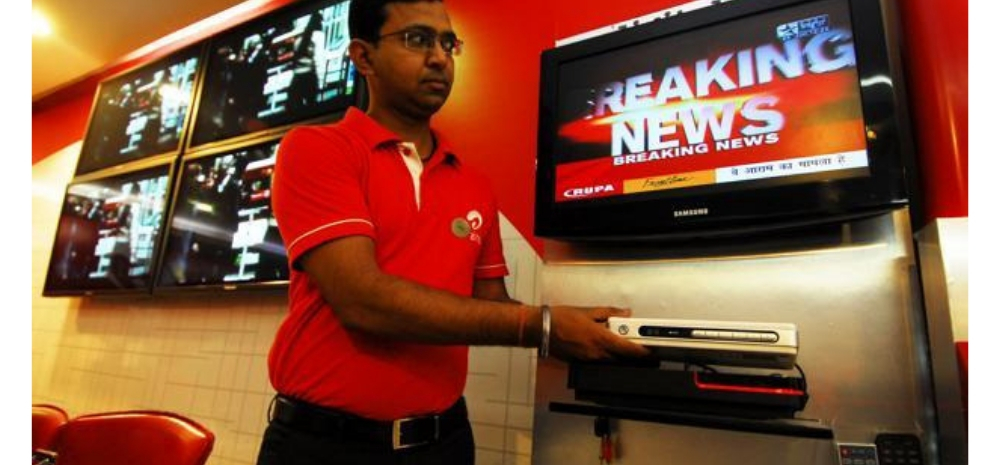Airtel, Dish, d2H, Siti Execute New Cable TV Rules; But Uncertainty Over Star Plus, Zee & Other Premium Channels Pricing

The Telecom Regulatory Authority of India, TRAI’ s TRAI’s new tariff order NTO 2.0 is all over the telecom and DTH sector right now. It has secured March 1, 2020 as the date to start the implementation of this NTO 2.0.
The telecom regulator has directed the broadcasters and DPOs to publish the required information about this new tariff order on their respective websites, in order to allow customers to exercise their choice of channels and bouquets before March 1.
Unfortunately, despite the regulatory board’s efforts, these broadcasters and DPOs failed to report to TRAI or publish the required information on their respective websites.
Let’s learn more about it.
NCF Rates Reduce & Include More Channels, as Per NTO 2.0
The new changes introduced by TRAI in its NTO 2.0 include providing 200 FTA channels per month in the base NCF slab of Rs 130 (Rs 153.40 including taxes).
In fact, Dish TV will charge up to Rs 160 (Rs 188.80 including taxes) per month for channels greater than 200. Tata Sky and Airtel Digital TV too share similar slabs. Earlier, these providers were providing NCF for 0 to 100 SD channels for Rs 153. However, the revised NCF rules will provide 0 to 200 channels at the same price.
Also, the new rules prohibit DTH and cable operators from including any channel priced above Rs 12 as a part of their channel packages. TRAI made changes to its tariff order after being inundated with complaints from customers alleging that their monthly cable and DTH bills have gone up considerably because of broadcasters raising their channel prices last year.
Multi TV Policy
After Tata Sky and Airtel Digital TV, D2h a part of DishTV India became the third DTH operator to implement Trai’s National Tariff Order 2.0 on its platform. Sun Direct also updated its NCF policy, but it is not in-line with new Trai rules.
D2h did not revise its Multi TV Policy and shall continue to charge Rs 50 as NCF from every secondary connection user. Well according to the new rules, NCF for Multi TV users will be charged at 40% of the primary connection.
D2h has completely implemented NTO 2.0 on its platform. However, unlike other operators, it is giving four NCF slabs to the primary connection holders. The first one is- up to 200 channels will be provided in the base slab of Rs 130 (excluding taxes), 201-210 channels at Rs 140, 211-220 channels at Rs 150 and more than 221 channels at Rs 160 NCF.
Tata Sky and Airtel Digital TV are providing just two NCF slabs- NCF of Rs 130 for the first 200 channels and Rs 160 for channels more than 200.
DTH Providers Complying and Not
Speaking of Airtel Digital, it has partially complied with TRAI’s tariff order. Even though it has complied with provisions like reducing the network charge for up to 200 channels, it hasn’t with other parts of NTO.
In particular, the new rules prohibit DTH and cable operators from including any channel priced above Rs 12 as a part of their channel packages. However, many channels priced above Rs 12 can still be seen in Airtel’s packages up for sale on the selfcare portal.
In fact, Dish TV is the last Direct-to-the-Home operator in India to have implemented the NTO 2.0 by TRAI. Dish TV will offer 200 channels in the base NCF slab of Rs 130 and up to Rs 160 will be charged for channels greater than 200.
Tata Sky and Airtel Digital TV will be charging Rs 61 as NCF from every Multi TV user with Rs 153 as NCF for primary connection. However, Dish TV will follow the same slabs for Multi TV as charged by D2h, as the latter is now fully owned by Dish TV India.
Tamil Nadu based Multi-System Operators (MSO) Thamizhaga Cable TV Communication Pvt Ltd, (TCCL) along with Siti Networks too have agreed and pushed the revised NCF rates mentioned in the NTO 2.0.
Trai had already notified the Supreme Court that they would not defer the implementation of the new tariff order and it is scheduled to go live from March 1, 2020.
Apart from TCCL and Siti Network, Jaya TV is the only broadcaster who has published its revised bouquets in accordance with the new NTO. However, various broadcasters have challenged the implementation of New NTO, and they have not revised their NCF and bouquets.

Comments are closed, but trackbacks and pingbacks are open.